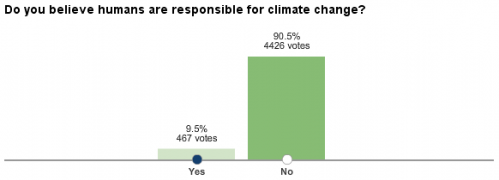Category: Aside
Snow & Eagles
Individuals matter after all
From arXiv:
From bird flocks to fish schools, animal groups often seem to react to environmental perturbations as if of one mind. Most studies in collective animal behaviour have aimed to understand how a globally ordered state may emerge from simple behavioural rules. Less effort has been devoted to understanding the origin of collective response, namely the way the group as a whole reacts to its environment. Yet collective response is the adaptive key to survivor, especially when strong predatory pressure is present. Here we argue that collective response in animal groups is achieved through scale-free behavioural correlations. By reconstructing the three-dimensional position and velocity of individual birds in large flocks of starlings, we measured to what extent the velocity fluctuations of different birds are correlated to each other. We found that the range of such spatial correlation does not have a constant value, but it scales with the linear size of the flock. This result indicates that behavioural correlations are scale-free: the change in the behavioural state of one animal affects and is affected by that of all other animals in the group, no matter how large the group is. Scale-free correlations extend maximally the effective perception range of the individuals, thus compensating for the short-range nature of the direct inter-individual interaction and enhancing global response to perturbations. Our results suggest that flocks behave as critical systems, poised to respond maximally to environmental perturbations.
Fizzle
Hackers have stolen zillions of emails from CRU. The climate skeptic world is in such a froth that the climateaudit servers have slowed to a crawl. Patrick Michaels has declared it a “mushroom cloud.”
I rather think that this will prove to be a dud. We’ll find out that a few scientists are human, and lots of things will be taken out of context. At the end of the day, climate science will still rest on diverse data from more than a single research center. We won’t suddenly discover that it’s all a hoax and climate sensitivity is Lindzen’s 0.5C, nor will we know any better whether it’s 1.5 or 6C.
We’ll still be searching for a strategy that works either way.
GAMS Rant
I’ve just been looking into replicating the DICE-2007 model in Vensim (as I’ve previously done with DICE and RICE). As usual, it’s in GAMS, which is very powerful for optimization and general equilibrium work. However, it has to be the most horrible language I’ve ever seen for specifying dynamic models – worse than Excel, BASIC, you name it. The only contender for the title of time series horror show I can think of is SQL. I was recently amused when a GAMS user in China, working with a complex, unfinished Vensim model, heavy on arrays and interface detail, 50x the size of DICE, exclaimed, “it’s so easy!” I’d rather go to the dentist than plow through yet another pile of GAMS code to figure out what gsig(T)=gsigma*EXP(-dsig*10*(ORD(T)-1)-dsig2*10*((ord(t)-1)**2));sigma(“1”)=sig0;LOOP(T,sigma(T+1)=(sigma(T)/((1-gsig(T+1))));); means. End rant.
Copenhagen Expectations
Danes
Piet Hein
(translated by a friend)
Denmark seen from foreign land
Looks but like a grain of sand
Denmark as we Danes conceive it
Is so big you won’t believe it.
Why not let us compromise
About Denmark’s proper size
Which will surely please us all
Since it’s greater than it’s small
Maybe this is a good way to think about COP15 prospects?
C-ROADS Roundup
I’m too busy to write much, but here are some quick updates.
C-ROADS is in the news, via Jeff Tolleffson at Nature News.
Our State of the Global Deal conclusion, that current proposals are not on track, now has more reinforcement:
- Â Juliet Eilperin at the WaPo covers Bob Correll on the new UN report.
- Another newish paper from IIASA, using the GAINS model.
- Rogelj et al. in Nature, with Halfway to Copenhagen, no way to 2 °C
Check out Drew Jones on TEDx.
Hottest Day Ever
A few weeks ago, Seattle racked up its hottest day ever, at 103 degrees F. I was there for the fun. Normally I argue that air conditioning in the Pacific Northwest is for wimps, but we weren’t too thrilled about experiencing the record heat in a hotel without functioning AC. The next day (still hot) I was at a hotel that did have AC (the Crowne Plaza), and found this amazing scene:

AC on full blast … and people huddled around a gas fire in the lobby?!
Don’t even get me started on the ice machinein a 100 degree closet, with an electric fan venting its waste heat into the hall, only to be expelled to the great outdoors by the building AC…
Incidentally, while it’s been mercifully cool and wet here in Montana, satellite records indicate that July 19 was possibly the hottest day ever recorded worldwide.
This is freedom?
From the CSM on the Gates arrest:
“The rule is, if a police officer stops you in a car or on the street, he’s the captain of the ship, and whatever he says goes,” says Jim Pasco, executive director of the Fraternal Order of Police’s legislative division. “If you’ve got something to address, do it later. Do what he says, or else only bad things can happen.”
I think I see where this guy’s coming from, but it really sounds bad. If an officer asks me to stop doing something constitutionally protected (say, taking pictures), I can’t argue the case on the spot? I either give up my rights or go downtown?
Dynamic Drinking
Via ScienceDaily,
A large body of social science research has established that students tend to overestimate the amount of alcohol that their peers consume. This overestimation causes many to have misguided views about whether their own behaviour is normal and may contribute to the 1.8 million alcohol related deaths every year. Social norms interventions that provide feedback about own and peer drinking behaviours may help to address these misconceptions.
Erling Moxnes has looked at this problem from a dynamic perspective, in Moxnes, E. and L. C. Jensen (in press). “Drunker than intended; misperceptions and information treatments.” Drug and Alcohol Dependence. From an earlier Athens SD conference paper,
Overshooting alcohol intoxication, an experimental study of one cause and two cures
Juveniles becoming overly intoxicated by alcohol is a widespread problem with consequences ranging from hangovers to deaths. Information campaigns to reduce this problem have not been very successful. Here we use a laboratory experiment with high school students to test the hypothesis that overshooting intoxication can follow from a misperception of the delay in alcohol absorption caused by the stomach. Using simulators with a short and a long delay, we find that the longer delay causes a severe overshoot in the blood alcohol concentration. Behaviour is well explained by a simple feedback strategy. Verbal information about the delay does not lead to a significant reduction of the overshoot, while a pre test mouse-simulator experience removes the overshoot. The latter policy helps juveniles lessen undesired consequences of drinking while preserving the perceived positive effects. The next step should be an investigation of simulator experience on real drinking behaviour.


